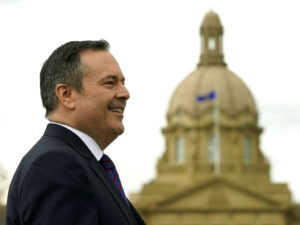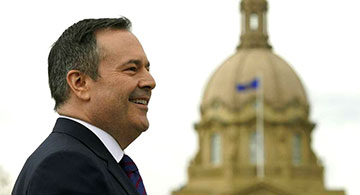
The results of the recent federal elections revealed some surprising stats. From a newcomer’s perspective, and from one who is no stranger to politics, the losses that the Liberals suffered and the rise of the Conservatives is a clear signal that Canada may be reaching a political crossroad.
Although Justin Trudeau is keeping his job, the Liberals lost 27 seats. They failed to win a single seat in Alberta or Saskatchewan, a testament to the western provinces’ disdain for the Liberals. Even Edmonton’s own Amarjeet Sohi lost his seat.

On the contrary, the Conservatives gained 26 more seats even though Andrew Scheer lost to Trudeau. They now hold 121 seats in Parliament. Bloc Québécois, which had been relegated to a minor player on the national stage just a few years ago, is back: it won 32 seats last October and has dislodged the NDP as the third biggest party in Parliament.
Trudeau and the Liberals will be running a minority government this time since no party got 170 seats for a majority government. With the Conservatives ready to shift to high gear, the Liberals are looking to establish working relationships in Parliament in a bid to stay in control and push its agenda of expanding the middle class and protecting the environment, among others.
For Alberta and the rest of the western region, the stakes just go higher. There is now more pressure on Jason Kenney to find more ways deliver on his promises to Albertans. Clearly, he will get very little support, if any, from Ottawa.
The single biggest issue on the table—the pipeline—is nowhere near green light status. And as British Columbia continues to fight Alberta over the project, and as Bloc Québécois starts to flex its muscles (it has vowed to continue resisting the pipeline), Kenney will have to find a way to steer through the political maze in Ottawa to actually get things moving at home.
On one hand, Kenney is right to say Trudeau and Ottawa have ignored many of Alberta’s pleas. The sentiment among many Albertans is that Ottawa has always been, and continues to be, indifferent to Alberta. There is much truth there, so much so that all this talk of separatism or secession (Wexit or Albexit or whatever word their proponents fancy) are once again eliciting national commentary and discussion.
On the other hand, Kenney and Alberta’s leaders must show vision and foresight and not succumb to populist sentiment. If there was ever a time to show restraint and reason, this should be one of those.
Kenney is an astute political veteran. He can be forgiven for rising in indignation against Trudeau and the Liberals for their indifference to Alberta’s woes. But the Liberals will be running a minority government, and Trudeau will be hard-pressed to form his Cabinet. Kenney, a conservative, is no doubt reading the political landscape intently. He can make Alberta a valuable chip on the table for Scheer and the Conservatives. The premier, if he plays his hand well, could still come out on top and deliver the goods for Alberta.


